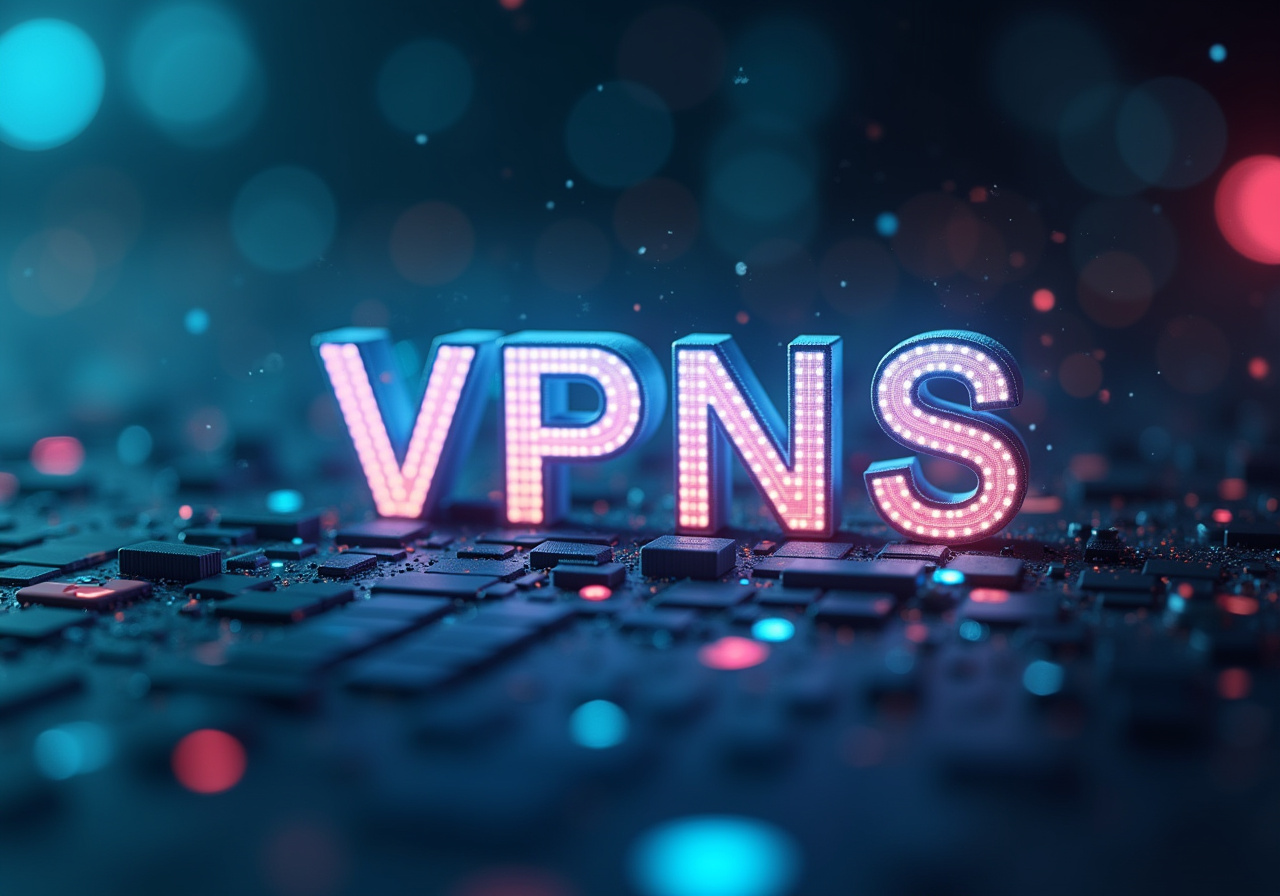VPNs for Crowdsourcing Platforms: Securing Contributor Data

Table of Contents
VPNs for Crowdsourcing Platforms: Securing Contributor Data
The digital landscape has witnessed a remarkable surge in collaborative endeavors, and at the forefront of this evolution lies crowdsourcing. This innovative approach harnesses the collective intelligence and diverse skill sets of a distributed network of contributors, enabling organizations to tackle complex challenges, generate novel ideas, and accelerate project completion. However, the very essence of crowdsourcing – its open and collaborative nature – also introduces a significant security challenge: protecting the sensitive data of contributors and ensuring the integrity of project submissions.
Imagine hundreds, or even thousands, of individuals from disparate locations, using various devices and networks, all contributing to a single project. Each connection point becomes a potential vulnerability, a gateway for malicious actors to exploit weaknesses in security protocols. Intellectual property theft, data breaches compromising personal information, and the sabotage of project data become real and present risks, threatening the foundation of trust upon which successful crowdsourcing initiatives are built.
Without robust security measures, the potential benefits of crowdsourcing – innovation, scalability, and diverse perspectives – can be overshadowed by the looming threat of data compromise and the erosion of contributor confidence. The vulnerability stems from the inherent nature of online data transmission. When contributors submit their work, whether it's designs, code, research findings, or creative content, that data travels across networks, potentially exposed to interception and manipulation.
Public Wi-Fi hotspots, often used by contributors working remotely, are notorious for their lack of security, making them prime targets for hackers seeking to steal sensitive information. Even on seemingly secure networks, data can be vulnerable if it's not properly encrypted. Moreover, contributors themselves may unknowingly introduce risks through weak passwords, outdated software, or compromised devices.
In a crowdsourcing environment, where anonymity and ease of participation are often prioritized, these individual vulnerabilities can quickly cascade into a systemic security risk for the entire platform. The consequences of such a breach can be devastating. For the organization utilizing crowdsourcing, a data leak can lead to significant financial losses, reputational damage, and legal liabilities.
For contributors, the exposure of personal information can result in identity theft, financial fraud, and other forms of online harassment. The loss of trust in the platform can also discourage future participation, stifling innovation and undermining the long-term success of the initiative. Therefore, for any organization seeking to leverage the power of crowdsourcing, prioritizing data security and protecting contributor privacy is not merely a best practice; it is a fundamental requirement for fostering a thriving and sustainable collaborative ecosystem.
A strategic implementation of Virtual Private Networks (VPNs) emerges as a powerful and effective solution to address these critical security concerns. By creating an encrypted tunnel for data transmission, VPNs provide a secure and private pathway for contributors to connect to the crowdsourcing platform, shielding their sensitive information from prying eyes and mitigating the risks associated with unsecured networks. Utilizing additional security tools like reliable firewalls and multifactor authentication adds a critical layer of protection that enhances the effectiveness of the VPN encryption service, significantly reducing the risk of data interception, unauthorized access, and other cyber threats that can compromise crowdsourcing platforms.
In essence, a well-designed and implemented VPN strategy can transform a potentially vulnerable crowdsourcing environment into a secure and trusted space where innovation can flourish without compromising data security or individual privacy, leading to greater adoption of the platform with a stronger community of contributors.
The escalating threat landscape in the digital realm necessitates a comprehensive understanding of the risks inherent in crowdsourcing platforms if the proper security measures are not implemented. One of the primary concerns revolves around the potential interception of sensitive data during transmission. Contributors often submit intricate designs, confidential research findings, or proprietary code through these platforms.
Without adequate protection, this information could be vulnerable to eavesdropping, allowing malicious actors to gain access to valuable intellectual property or personally identifiable information (PII). Man-in-the-middle attacks, where an attacker intercepts communication between two parties, pose a significant risk, particularly when contributors are using unsecured public Wi-Fi networks. These attacks can enable the attacker to steal login credentials, modify submitted data, or inject malicious code into the project.
Furthermore, the lack of proper authentication mechanisms can leave crowdsourcing platforms susceptible to unauthorized access. If contributors use weak passwords or if the platform does not enforce multi-factor authentication, attackers may be able to compromise accounts and gain access to sensitive data or project submissions. Another critical consideration is the potential for data breaches on the platform itself.
If the platform's servers are not adequately secured, attackers could gain access to the entire database, potentially exposing the personal information of all contributors and the details of all projects. This could have devastating consequences, including reputational damage for the organization, legal liabilities for data breaches, and the loss of valuable intellectual property. Internal threats from rogue employees or disgruntled contractors also need to be considered, as they may have privileged access to sensitive data and the potential to leak or misuse it.
Addressing these threats requires a multi-layered security approach, encompassing strong authentication, access controls, data encryption, and regular security audits. A strategic defense includes routine vulnerability scanning and penetration testing to locate weaknesses in the platform's infrastructure before they can be exploited. Employee training programs emphasizing security best practices and the dangers of phishing attacks should also be implemented.
Therefore, understanding these potential vulnerabilities is paramount for implementing effective security measures. To address these threats, VPNs offer a robust solution by creating encrypted tunnels for data transmission. This encryption scrambles the data, rendering it unreadable to anyone who intercepts it.
The use of strong encryption algorithms ensures that even if an attacker gains access to the data stream, they will be unable to decipher it. Additionally, VPNs can mask the contributor's IP address, providing an additional layer of privacy and anonymity. This makes it more difficult for attackers to track the contributor's online activity or identify their location.
By implementing a VPN, organizations can significantly reduce the risk of data interception, man-in-the-middle attacks, and unauthorized access to sensitive information. This, in turn, fosters a more secure and trusted crowdsourcing environment, encouraging contributors to share their expertise and ideas without fear of compromising their privacy or the security of their data. When implemented correctly, a VPN serves as a critical cornerstone in a comprehensive security strategy, providing a tangible defense against the myriad of threats facing crowdsourcing platforms.
This not only safeguards valuable data but also builds trust and confidence among contributors, fostering a more vibrant and productive collaborative ecosystem.
The implementation of a robust VPN strategy within a crowdsourcing ecosystem necessitates a meticulous evaluation of various factors to ensure optimal security and functionality. Firstly, the choice of VPN protocol is paramount. Protocols like OpenVPN and WireGuard are widely regarded for their robust security features and open-source nature, allowing for greater transparency and community scrutiny.
These protocols employ strong encryption algorithms and provide secure authentication mechanisms, mitigating the risk of data interception and unauthorized access. Older protocols, such as PPTP, should be avoided due to their known vulnerabilities. The strength of the encryption algorithm used by the VPN is also crucial.
AES (Advanced Encryption Standard) with a key length of 256 bits is considered the industry standard for strong encryption, providing a high level of protection against brute-force attacks. Shorter key lengths may be vulnerable to compromise, particularly with the increasing computational power of modern hardware. Beyond the technical aspects, the VPN provider's logging policy is a critical consideration.
A reputable provider should adhere to a strict no-logs policy, meaning that they do not track or store any user activity, including browsing history, IP addresses, or connection timestamps. This ensures that even if the VPN provider's servers are compromised, there will be no user data available to be accessed. The provider's jurisdiction also plays a significant role.
VPN providers based in countries with strong data privacy laws and regulations are generally more trustworthy, as they are legally obligated to protect user data. Conversely, providers based in countries with lax data privacy laws or those that are part of surveillance alliances may be compelled to share user data with government agencies. Scalability is another crucial factor to consider, particularly for large crowdsourcing platforms with a high volume of contributors.
The VPN infrastructure should be able to handle a large number of concurrent connections without compromising performance or security. Load balancing and distributed server architectures can help to ensure that the VPN remains responsive and reliable even during peak usage periods. It is also important to consider the user-friendliness of the VPN client software.
The client should be easy to install, configure, and use, even for contributors who are not technically savvy. Clear instructions and readily available support resources can help to ensure that all contributors are able to connect to the VPN without difficulty. Integrating the VPN seamlessly with the crowdsourcing platform is also paramount for a positive user experience.
Single sign-on (SSO) integration can simplify the login process, allowing contributors to access the VPN and the platform with a single set of credentials. Automated VPN connection upon platform access can further streamline the process, ensuring that all data transmission is automatically encrypted without requiring any manual intervention from the contributor. In some cases, it may be appropriate to offer contributors a choice of VPN locations.
This can be useful for contributors who need to access geographically restricted content or who want to improve their browsing speed by connecting to a server closer to their location. However, it is important to ensure that all VPN locations offer the same level of security and privacy protection. Regular security audits and penetration testing should be conducted to ensure that the VPN infrastructure remains secure and that all potential vulnerabilities are promptly addressed.
This includes testing the VPN client software, the VPN servers, and the network infrastructure to identify any weaknesses that could be exploited by attackers. The VPN configuration and settings can be tailored to meet the specific needs of the organization. This includes setting up access controls, configuring firewall rules, and implementing data loss prevention (DLP) policies to protect sensitive information.
VPNs for Services: Enhancing Security and Privacy on Online Platforms
Beyond the technical implementation and configuration, the successful integration of a VPN solution within a crowdsourcing platform hinges significantly on fostering a culture of security awareness among contributors. Many security breaches stem not from technological shortcomings, but from human error. Contributors may inadvertently expose sensitive data through phishing attacks, weak passwords, or by using unsecured devices.
Therefore, a comprehensive training and education program is essential to empower contributors to make informed decisions and adopt secure practices. This program should cover a range of topics, including the importance of strong passwords and multi-factor authentication, how to identify and avoid phishing scams, the risks of using public Wi-Fi networks without a VPN, and best practices for securing their devices. Regular reminders and updates can help to reinforce these concepts and keep security top-of-mind.
The training program doesn't need to overly complicated. Short, engaging videos, interactive quizzes, and easily accessible guides can be more effective than lengthy and technical documents. The key is to present the information in a clear, concise, and relatable manner, focusing on practical tips that contributors can easily implement in their daily routines.
Communicating the benefits of using a VPN is also crucial for gaining contributor buy-in. Many contributors may be hesitant to use a VPN if they perceive it as being too complicated or time-consuming. Highlighting the enhanced security and privacy benefits, as well as the ease of use, can help to overcome these objections.
Emphasizing that the VPN protects not only the organization's data but also their own personal information can be a powerful motivator. A phased rollout of the VPN can be a helpful way to manage the transition and address any concerns or questions that contributors may have. Starting with a pilot group of contributors can allow you to test the VPN implementation and gather feedback before rolling it out to the entire community.
This can also help to identify any potential issues or challenges that need to be addressed before the full deployment. Providing ongoing support and assistance is essential for ensuring that contributors are able to use the VPN effectively. A dedicated help desk or support team can answer questions, troubleshoot technical issues, and provide guidance on best practices.
A comprehensive FAQ document can also be a valuable resource for addressing common questions. Regularly monitoring the VPN usage and security logs can help to identify any potential issues or anomalies. Unusual activity, such as failed login attempts or connections from suspicious locations, may indicate a security threat.
Implementing automated alerts can help to quickly detect and respond to these incidents. Periodically reviewing and updating the VPN configuration and security policies is also important to ensure that they remain effective in the face of evolving threats. New vulnerabilities are constantly being discovered, so it's essential to stay up-to-date on the latest security best practices and adapt your security measures accordingly.
Seeking feedback from contributors is also valuable for identifying areas where the VPN implementation can be improved. Contributors may have valuable insights into usability issues, performance problems, or security concerns that you may not be aware of. By actively soliciting and responding to feedback, you can create a continuously improving VPN solution that meets the needs of both the organization and its contributors.
Remember that data privacy laws may require you to inform contributors exactly how their data is being used and what steps are being taken to protect it. Transparency can help build trust.
The Future of VPNs: Enhanced Integration, AI-Powered Protection, and Blockchain Security
In conclusion, the integration of VPNs into crowdsourcing platforms represents a crucial step towards fostering a secure and trustworthy environment for both organizations and contributors. By addressing the inherent vulnerabilities associated with open collaboration and distributed networks, VPNs provide a robust layer of protection for sensitive data and intellectual property. However, the successful deployment of a VPN solution requires more than just technical implementation.
It necessitates a holistic approach that encompasses careful selection of protocols and providers, seamless integration with existing platforms, comprehensive training and education programs, and ongoing monitoring and maintenance. Failing to address any of these critical aspects can undermine the effectiveness of the VPN and leave the crowdsourcing platform vulnerable to security breaches. For example, choosing a VPN provider with a questionable logging policy or neglecting to educate contributors about phishing scams can negate the benefits of encryption and create new avenues for attack.
Therefore, organizations must adopt a strategic and proactive approach to VPN implementation, considering not only the technical aspects but also the human and organizational factors that contribute to overall security. The keyword 'contributor data security' should be at the forefront of the development process. Looking ahead, the role of VPNs in crowdsourcing platforms is likely to become even more critical as the threat landscape continues to evolve and data privacy regulations become more stringent.
Emerging technologies, such as blockchain and secure enclaves, may offer additional layers of security, but VPNs will likely remain a fundamental component of a comprehensive security strategy. As crowdsourcing becomes increasingly integrated into various industries and sectors, the need for secure and reliable collaboration will only intensify. Organizations that prioritize contributor data security and invest in robust VPN solutions will be best positioned to harness the full potential of crowdsourcing while mitigating the associated risks.
They will be able to attract top talent, foster innovation, and maintain a competitive edge in the increasingly interconnected world. Ultimately, the goal is to create a crowdsourcing ecosystem where contributors feel safe and confident in sharing their expertise and ideas, knowing that their data is protected and their privacy is respected. The correct use of the keyword 'project submission protection' and 'VPN for innovation' can create a strong culture of ethical responsibility.
This requires a commitment to transparency, accountability, and continuous improvement in security practices. By embracing a culture of security awareness and investing in robust VPN solutions, organizations can unlock the full potential of crowdsourcing and drive innovation in a secure and sustainable way. The combination of solid security measures and clear communication fosters trust which helps to create a thriving ecosystem.
A VPN deployment can be used as a market differentiation factor to attract contributors. It's a demonstration of serious commitment to their security and privacy, giving them a valuable reason to participate in your crowdsourcing project
Stay Updated
Get the latest VPN news, tips, and exclusive deals to your inbox.




